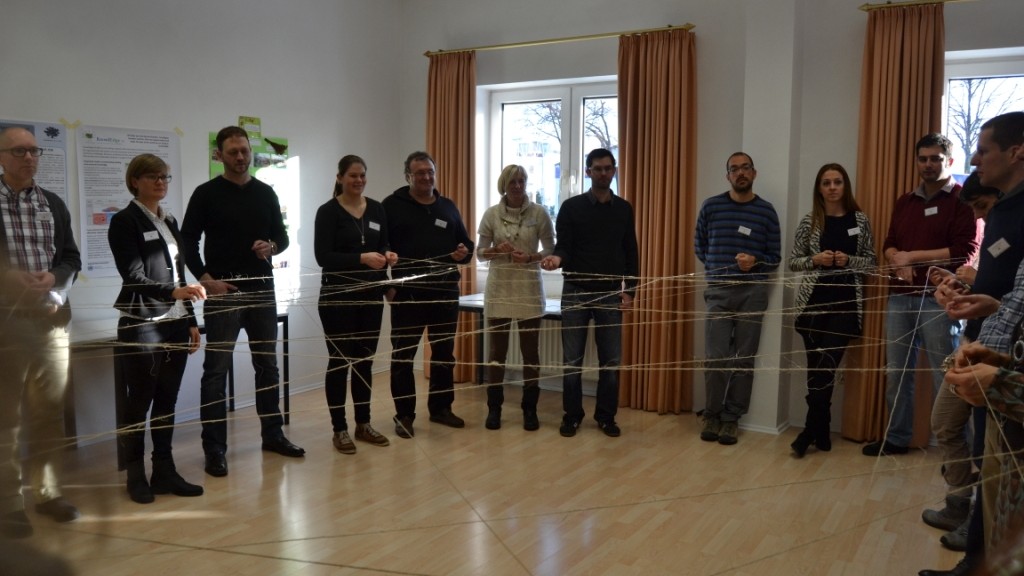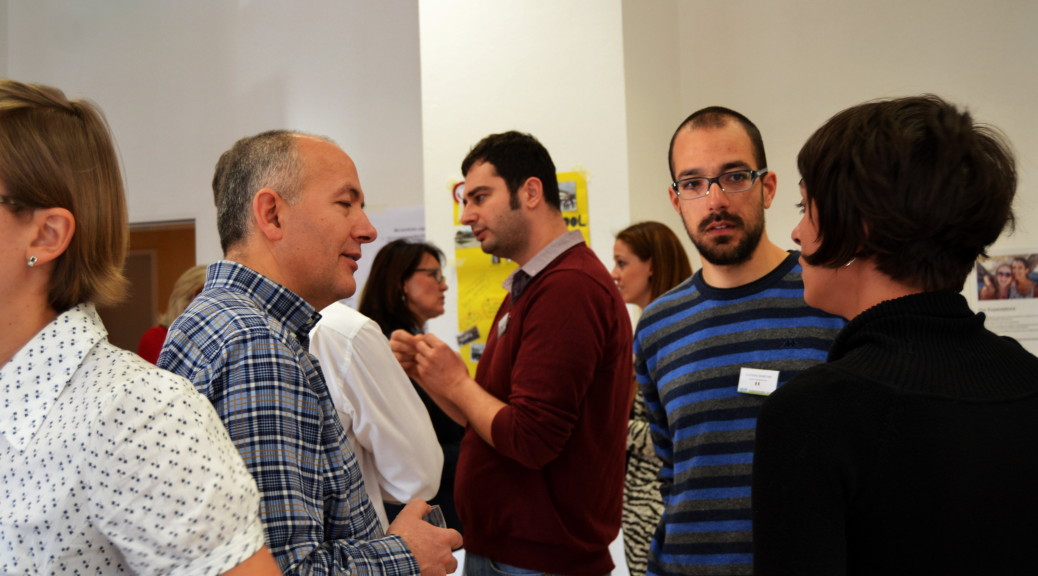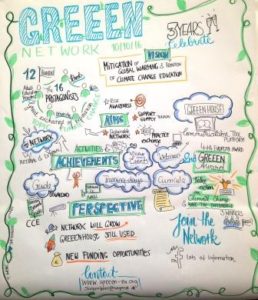 Our experiences have shown that teachers can improve students’ awareness, understanding and actions in relation to climate change education through curricular and extracurricular activities. GREEEN used networking as the main process to enrich and strengthen these efforts, and as a result opportunities for collaboration between students, teachers and schools through a multidisciplinary approach have become varied and enriched. This paper presents the recommendations for educational policy decision makers and curriculum developers to make climate change education as an essential part of school education in line with the experiences gained in this Project.
Our experiences have shown that teachers can improve students’ awareness, understanding and actions in relation to climate change education through curricular and extracurricular activities. GREEEN used networking as the main process to enrich and strengthen these efforts, and as a result opportunities for collaboration between students, teachers and schools through a multidisciplinary approach have become varied and enriched. This paper presents the recommendations for educational policy decision makers and curriculum developers to make climate change education as an essential part of school education in line with the experiences gained in this Project.
Tag Archives: science education
And the award goes to …
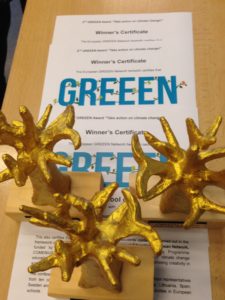 In the second GREEEN award the task was to describe projects or ideas that would illustrate actions, their key outcomes, and their success in meeting the climate change challenge locally.
In the second GREEEN award the task was to describe projects or ideas that would illustrate actions, their key outcomes, and their success in meeting the climate change challenge locally.
From the more than 50 submitted projects the European jury and the public vote decided on the three winners.
And the winner are: Continue reading And the award goes to …
GREEEN Events
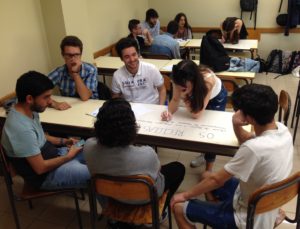 GREEEN Network members will start organising a number of events on climate change related topics. We are interested in initiating a European exchange among GREEEN network members and external stakeholders, and to engage in dialogue with experts and interested stakeholders from the field. The events address both GREEEN partners and other stakeholders interested in Climate Change Education (CCE).
GREEEN Network members will start organising a number of events on climate change related topics. We are interested in initiating a European exchange among GREEEN network members and external stakeholders, and to engage in dialogue with experts and interested stakeholders from the field. The events address both GREEEN partners and other stakeholders interested in Climate Change Education (CCE).
You can find our upcoming events here on the website or on Facebook: https://www.facebook.com/GREEEN.Europe
GREEEN – Kick-off meeting in Göttingen
GREEEN Kick-off meeting in Göttingen
The GREEEN network partners met for the first time in January 2014. The kick-off meeting aimed at getting to know to each other and at creating a common work basis. The network receives funding for three years. The ultimate aim is to establish a solid basis for a sustainable network that is open for new partners at European level.
For this purpose, GREEEN intends to organise a number of events, among others training days, webinars, the GREEEN award, in order to make GREEEN visible at a European level, and to provide interesting products and services that attract new partners. One of the products will be a collection of good practices and teaching and learning strategies on climate change education.
As a starting point, partners in the kick-off meeting identified challenges they are confronted with in science education as well as possible improvements in order to create a basis, on which to start gathering existing practice and generating new approaches in Climate Change Education.
The results of this discussion are visualised in the tagcloud: 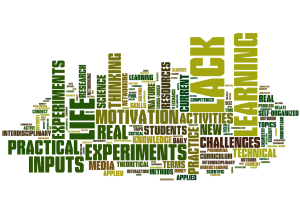 It was agreed that it is often hard to motivate students in science education. An improvement was seen in making science education more practical and applicable to real life situations. Pratical inputs and real life topics that are of interest for the students seem a solution. Also an exchange with other schools, businesses and other fields was mentioned as a possible improvement. Learning outside the school as well as promoting self-directed learning were two methods that were considered as interesting ways to motivate students. The two-day meeting was far too short to go into depth with the topic. Thus the group split into three work groups that will work on the following topics:
It was agreed that it is often hard to motivate students in science education. An improvement was seen in making science education more practical and applicable to real life situations. Pratical inputs and real life topics that are of interest for the students seem a solution. Also an exchange with other schools, businesses and other fields was mentioned as a possible improvement. Learning outside the school as well as promoting self-directed learning were two methods that were considered as interesting ways to motivate students. The two-day meeting was far too short to go into depth with the topic. Thus the group split into three work groups that will work on the following topics:
- Integrating climate change contents and examples (internal);
- Integrating external practice and expertise/presenting innovative methods and tools;
- Networking.
The first results are expected in March.
GREEEN – Our Aims
Apart from setting-up a sustainable European network, GREEEN aims to:
- Integrate climate change related topics sustainably into (science) education in schools;
- Promote teacher training on climate change education (e.g. understanding of basic concepts, trends and issues; identifying educational implications of teaching about climate change etc.);
- Foster the European exchange and transfer of experiences and good practices on climate change education among education institutes, teacher trainers, teachers, practitioners, NGOs and young people;
- Identify learning materials, good practices and teaching and learning strategies on climate change education and enhance their dissemination through the GREEEN platform and other means;
- Increase the production of and access to information and innovative solutions for science education on climate change and sustainable development;
- Promote closer linkages between science education and science working market emergent trends and opportunities.
